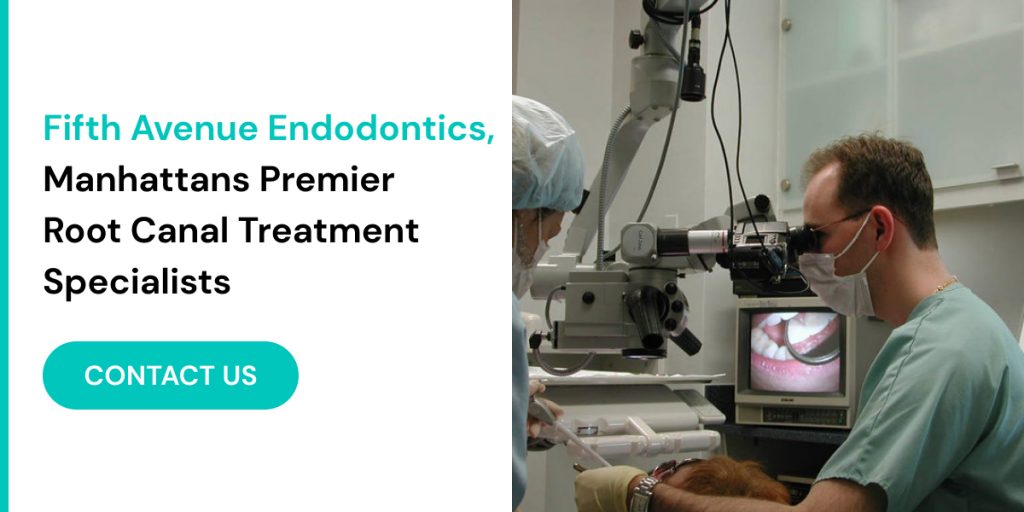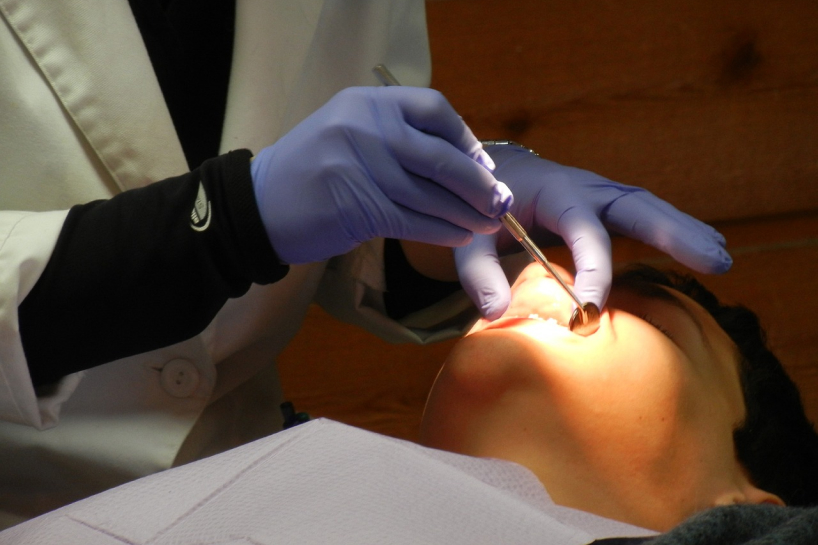When it comes to root canal treatment, various health conditions can significantly influence both the process and the outcomes of the procedure. One notable condition that affects endodontic care is Gastroesophageal Reflux Disease (GERD). This chronic condition involves the frequent backflow of stomach acid into the esophagus, leading to irritation and inflammation. For patients seeking Manhattan Endodontics, it’s important to recognize how GERD can complicate root canal therapy and to address these challenges proactively.
GERD can contribute to enamel erosion, tooth sensitivity, and an increased risk of cavities, all of which can impact the effectiveness of a root canal treatment. Enamel erosion, in particular, weakens the tooth structure, potentially making the root canal procedure more complex. Understanding the interplay between GERD and endodontic therapy is essential for tailoring treatment plans that accommodate these unique challenges.
At Fifth Avenue Endodontics, under the meticulous care of Dr. Iofin, we prioritize addressing these specific concerns. We conduct thorough evaluations and customize treatment approaches to ensure that patients with GERD receive the most informed and effective care possible. Our goal is to enhance treatment outcomes while managing the additional risks associated with this condition.
What is GERD and How Does it Affect Dental Health?
Gastroesophageal Reflux Disease (GERD) is a chronic digestive condition characterized by the frequent leakage of stomach acid into the esophagus. This reflux occurs when the lower esophageal sphincter, which is supposed to prevent stomach contents from flowing backward, fails to function correctly. As a result, the acidic stomach contents irritate the lining of the esophagus, causing inflammation, discomfort, and a range of other symptoms such as heartburn and regurgitation.
The impact of GERD extends beyond gastrointestinal discomfort and can have significant repercussions for dental health. One of the primary concerns is enamel erosion. The stomach acid that repeatedly enters the mouth can erode the protective enamel layer of the teeth. Enamel is crucial for safeguarding teeth against decay and sensitivity, so its erosion can lead to increased vulnerability to cavities and heightened sensitivity to temperature changes and certain foods.
Furthermore, chronic acid exposure can weaken the tooth structure, making it more susceptible to damage and decay. This weakening of the tooth can complicate procedures like root canal therapy, as a compromised tooth structure may not hold up as well to the treatment process. Additionally, the enamel erosion caused by GERD can lead to an increased risk of cavities, which may necessitate more extensive dental intervention and potentially complicate endodontic procedures.
For patients undergoing endodontic therapy, managing the effects of GERD is crucial. The acid damage can not only affect the initial tooth structure but can also pose challenges in the healing process and overall success of the treatment. At Fifth Avenue Endodontics, we understand these complexities and work diligently to address them, ensuring that every patient receives comprehensive care tailored to their specific needs.

How GERD Impacts Endodontic Therapy
At Manhattan Endodontics, we recognize the unique challenges posed by Gastroesophageal Reflux Disease (GERD) and are committed to delivering specialized care to address these concerns. The acid erosion resulting from GERD can significantly affect the tooth structure and the success of endodontic therapy. Understanding these impacts is crucial for providing effective treatment and ensuring optimal outcomes.
- Weakened Tooth Structure: One of the primary issues associated with GERD is the erosion of tooth enamel caused by frequent acid exposure. Over time, this erosion can severely weaken the tooth’s structural integrity. For a tooth undergoing root canal therapy, this weakened structure presents several challenges. The compromised enamel and dentin can make it more difficult to properly seal the tooth following the removal of the infected pulp. A secure seal is essential for preventing future infections and ensuring the long-term success of the root canal. Additionally, the weakened tooth may be more susceptible to fractures, which can further complicate the endodontic treatment and require additional interventions.
- Increased Sensitivity: GERD-related acid damage can also lead to heightened tooth sensitivity. The erosion of enamel exposes the underlying dentin, which contains tiny nerve endings that can become more sensitive to external stimuli, such as hot or cold temperatures. This increased sensitivity can cause discomfort during the root canal procedure, as well as post-treatment sensitivity. Managing this sensitivity is a critical component of endodontic care for patients with GERD, and may require the use of specialized techniques or materials to alleviate discomfort and promote healing.
- Infection Risks: Another significant concern is the increased risk of infection. GERD-induced erosion can expose the tooth’s internal structures, including the pulp chamber and root canals, making them more vulnerable to bacterial invasion. An exposed or weakened pulp chamber can facilitate the entry of bacteria, leading to an increased risk of infection and complicating the endodontic treatment process. Effective management of these risks involves thorough cleaning and disinfection of the root canals, as well as careful monitoring to ensure that the infection does not recur.
At Fifth Avenue Endodontics, Dr. Iofin and the team are dedicated to navigating these complexities with precision and care. We develop customized treatment plans to address the specific needs of patients with GERD, ensuring that every aspect of the endodontic therapy is optimized for success. By understanding and managing the unique challenges associated with GERD, we aim to provide the best possible outcomes for our patients.
How Fifth Avenue Endodontics Addresses GERD-Related Concerns
At Fifth Avenue Endodontics, our approach to treating patients with Gastroesophageal Reflux Disease (GERD) is both comprehensive and individualized. We understand that GERD presents unique challenges for endodontic therapy, and we employ several targeted strategies to address these concerns effectively. Dr. Iofin and our dedicated team are committed to ensuring that each patient receives the highest standard of care tailored to their specific needs.
- Thorough Examination: The foundation of effective endodontic treatment for GERD patients begins with a thorough and detailed dental examination. Before proceeding with any root canal therapy, we conduct a comprehensive assessment to evaluate the extent of acid erosion and its impact on the tooth structure. This examination includes diagnostic imaging, such as X-rays, to visualize the internal condition of the teeth and identify any damage or erosion caused by GERD. By understanding the full extent of the acid damage, we can make informed decisions about the necessary treatment approach and address any potential complications before they arise.
- Customized Treatment Plans: Based on the findings from the examination, Dr. Iofin develops a customized treatment plan designed to address the unique needs of patients with GERD. This tailored approach often involves additional steps to reinforce the weakened tooth structure and enhance the overall effectiveness of the root canal therapy. For example, we may use advanced materials or techniques to bolster the tooth’s integrity, ensuring a more secure and durable result. Additionally, the treatment plan may include specific measures to mitigate sensitivity and protect the tooth from further damage. By customizing our approach, we aim to provide a solution that not only addresses the immediate needs of the root canal but also considers the long-term health of the tooth.
- Post-Treatment Care: Effective post-treatment care is crucial for managing sensitivity and preventing further issues after a root canal procedure. At Fifth Avenue Endodontics, we provide detailed aftercare instructions tailored to patients with GERD. These instructions may include recommendations for dietary adjustments to minimize acid exposure and prevent further enamel erosion. We also offer guidance on managing GERD symptoms to reduce their impact on dental health. By following these post-treatment care guidelines, patients can support the healing process, enhance the longevity of the root canal, and maintain overall oral health.
By addressing the specific challenges associated with GERD with precision and care, Dr. Iofin and the team at Fifth Avenue Endodontics ensure that every patient receives the highest quality of care and achieves the best possible outcomes from their endodontic therapy.
Tips for Managing GERD to Support Endodontic Health
For patients with Gastroesophageal Reflux Disease (GERD) who are undergoing endodontic treatment at Manhattan Endodontics, effectively managing GERD can significantly improve dental health and enhance the success of endodontic procedures. Here are some practical tips to help support endodontic health while managing GERD:
Dietary Adjustments: One of the most effective ways to manage GERD and protect your dental health is through careful dietary choices. Acidic foods and beverages, such as citrus fruits, tomatoes, and carbonated drinks, can exacerbate GERD symptoms and contribute to enamel erosion. To support both GERD management and dental health, opt for a diet that minimizes acid exposure. Incorporate non-acidic foods such as vegetables, whole grains, and lean proteins, and choose water or milk over acidic beverages. Additionally, eating smaller, more frequent meals can help reduce acid reflux and its impact on your teeth.
Regular Dental Check-ups: Regular visits to your dentist are crucial for monitoring the effects of GERD on your oral health. Frequent professional cleanings and comprehensive examinations allow your dentist to assess any damage caused by acid reflux, such as enamel erosion or increased sensitivity. Early detection of issues can lead to prompt interventions, which can help prevent more severe complications. Your dentist can also provide personalized advice on maintaining optimal oral health in the context of GERD.
Medication Management: If you are taking medication to manage GERD, it’s important to discuss this with Dr. Iofin to ensure that it does not interfere with your endodontic treatment. Some medications used to treat GERD, such as proton pump inhibitors (PPIs) or antacids, can affect oral health or interact with dental procedures. Dr. Iofin can provide guidance on how to manage these medications in conjunction with your endodontic care and may recommend adjustments if necessary to prevent any adverse effects on your dental treatment.
Hydration: Staying well-hydrated is another key strategy for managing GERD and protecting your teeth. Drinking plenty of water helps to neutralize stomach acid and flush away any acid that may come into contact with your teeth. Water also helps maintain a healthy saliva flow, which is essential for natural oral protection and digestion. Aim to drink water throughout the day, especially after meals, to help reduce the potential impact of GERD on your teeth.
By incorporating these tips into your daily routine, you can better manage GERD and support the health and effectiveness of your endodontic treatment. These proactive steps, combined with the expert care provided by Dr. Iofin and the team at Manhattan Endodontics, will contribute to a healthier mouth and more successful endodontic outcomes.

Conclusion
For patients with Gastroesophageal Reflux Disease (GERD) seeking endodontic therapy, a thorough understanding of how this condition interacts with dental procedures is essential for achieving the best outcomes. GERD can introduce specific challenges to root canal treatment, such as weakened tooth structure, increased sensitivity, and heightened infection risks. Addressing these complexities requires a nuanced approach, tailored to the unique needs of each patient.
At Fifth Avenue Endodontics, we specialize in navigating the intersection between GERD and endodontic therapy. Dr. Iofin and our experienced team are dedicated to overcoming the challenges presented by GERD, ensuring that each patient receives the highest standard of care. From thorough examinations and customized treatment plans to detailed post-treatment care, we are committed to providing a smooth and effective treatment process that addresses both immediate and long-term dental health concerns.
If you have GERD and are in need of Manhattan Endodontics, we invite you to reach out to us at Fifth Avenue Endodontics. Our team will work closely with you to develop a personalized treatment approach that considers your condition and supports your overall oral health. We are here to provide comprehensive care and support throughout your root canal therapy journey, helping you achieve the best possible results and maintain optimal dental health.

